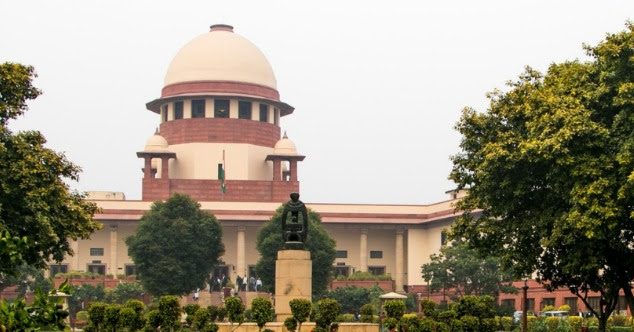Analysis
Monthly Review: September 2021
In September, nine new judges settled into their role. The Court began to hear important cases on reservations and tribunals.

In September, the Court was gradually opening up for physical hearings on a limited basis, while nine new judges settled into their role. The Court began to hear important cases on reservations and tribunals.
Pegasus Spyware Probe
September began with the explosive revelations on the Government’s alleged use of Pegasus spyware on citizens. Petitioners urged the court to order a judicial probe. However, the Union inexplicably refused to file a detailed affidavit and the Court has reserved interim orders. For more, visit our case page.
Delhi v the Union
The Union government’s efforts to stymie and choke the Delhi State government returned to the Supreme Court for the second time. The Union passed legislation (Government of National Capital Territory (Amendment) Act, 2021) increasing the powers of the Lieutenant Governor (LG) of Delhi. The Government of NCT, Delhi has challenged this as unconstitutional. A similar tussle between the Union and Delhi took place in 2018, which was resolved when the Court restricted the LG’s role. However, this recent amendment has upset that balance. For more, visit our case page.
Tribunals: The Reforms Act, Vacancies and the NGT
The Court has come to a stand-off with the Union over the independence of tribunals. Parliament recently passed the Tribunals Reforms Act, 2021, which brings back provisions that have already been struck down by the Court twice. The Court has also expressed concerns about the mounting vacancies in various tribunals. We are tracking this case here.
A separate controversy about the National Green Tribunal (NGT) is also before the Court: various petitioners have challenged the NGT’s exercise of ‘suo moto powers’. Final arguments on the case began in September. We have begun to track this case here.
We discussed the origin of suo moto powers and the debate surrounding it. While it began with the High Courts and the Supreme Court, some tribunals have also exercised the power. The arguments in the NGT case itself, might have larger implications for the powers of tribunals.
In light of these cases, we have compiled 4 Must Reads, looking at various aspects of the recent and past tribunals controversies.
Reservations: Three Crucial Cases and Bhushan J’s Legacy
In 2020, the Court had held in Siddaraju that persons with disabilities had a right to reservations in promotions.The Union requested a clarification from the Court on which kind of posts this reservation would apply to. However, the Court refused to issue any clarifications, stating that the judgment was sufficient.
The Court began to hear a crucial case regarding reservations in medical colleges. 15% of medical seats are under the All India Quota (AIQ), controlled by the Union. In July, after decades of campaigning, the Union decided to extend reservations to OBC and EWS students in the AIQ. Some medical aspirants and doctors have challenged this move, arguing it amounts to ‘reverse discrimination’. They have also argued that the 50% limit on reservation set in Indira Sawhney has been violated. Follow our coverage here.
The 50% limit was a crucial issue in the Maratha Reservations case earlier this year. In his leading opinion, Bhushan J stressed that the 50% cap was an absolute rule with limited exceptions. We write about his opinion on the 50% issue and how it is likely to be invoked in the AIQ case and the EWS reservation case.
Bhushan J’s opinion in the Maratha Reservations Case stressed the importance of ‘contemporaneous data’ to justify reservations. This ruling, and the potential of a national census in 2022 has led to a revival of demands for a Caste Census. This would collect data on the caste identity of every household. We discuss the impact of Bhushan J’s judgment on the demand for data on the caste composition of India.
The NEET examination also led to litigation by Overseas Citizens of India in a separate matter. A March 2021 notification said they could only participate in the NRI quota, requiring them to pay more fees and compete for limited seats. The Court granted interim relief, stating that the notification would not apply for this academic year.
The Court’s New Profile and the Collegium
With nine new judges taking office on August 31st 2021, the Court’s total strength is now at 33. The appointments have been celebrated for making the Bench more diverse. In a series of posts, we look at the Court’s current diversity profile in terms of gender, region, religion and caste.
The recent appointments have also raised debates on what factors the collegium takes into account when making recommendations. We looked back to the collegium resolutions between 2017 and 2019 which used to contain reasons for recommending judges. We have written about the five explicit factors we found: merit, integrity, seniority, regional diversity and social diversity.
